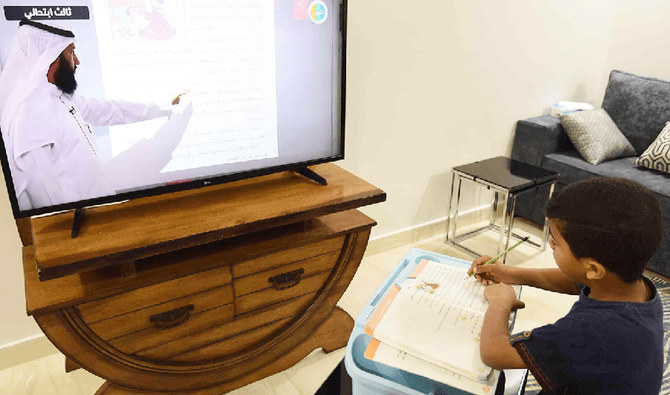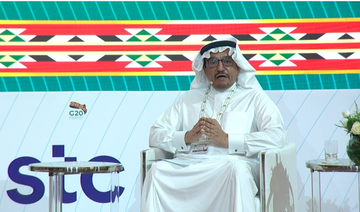MAKKAH: With the Saudi Minister of Education’s announcement Saturday evening that distance learning would continue after the pandemic, the Kingdom appears ready to take on the task and maintain its success.
Dr. Hamad Al-Shaikh said that e-learning and distance learning are important methods in the education system, adding that the ministry and the Education and Training Evaluation Commission are working closely together in several fields in order to produce better results for students and teachers alike.
Students are now into their second semester of distance learning. The decision to continue distance learning — a measure put in place initially to ensure the health of students and curb the spread of the coronavirus disease (COVID-19) — came in late August, as results from the previous semester showed promising.
Dr. Emtinan Al-Qurashi, director of digital and distance-learning development at Temple University in the US, said that Saudi Arabia was one of the fastest countries in the world to respond to educational emergencies and that its efforts were tremendous.
Al-Qurashi, a winner of the Best Research Award from the American Association for Educational Communications and Technology, stated that since the beginning of the COVID-19 crisis, Saudi educational facilities have made a great effort to allow students to continue their education.
“One of the most difficult challenges, in my opinion, is the lack of qualified staff for this new educational environment. Qualifying educational staff for this transformation is something that does not happen quickly, unlike the technology and tools required by this environment, which can be acquired and activated rather rapidly. Usually, when we want to set up an electronic facility for distance learning, it takes a long time. Even creating remote materials sometimes takes months,” she said.

The success of emergency education using technology has translated into a way of life, with many now cooperating to develop and improve competencies to further this new style of learning.
SPEEDREAD
Saudi Arabia was one of the fastest countries in the world to respond to educational emergencies and its efforts were tremendous, says Dr. Emtinan Al-Qurashi.
Al-Qurashi indicated that several things needed to be taken into account in order for e-learning to be effective: Internet and electronic devices must be made available to all; students with special needs and learning difficulties must be accommodated; and psychosocial support must be provided.
The educational cadre should be developed and qualified, Al-Qurashi added, stressing that distance education is a new learning environment, not only in terms of technology but also in terms of designing the curriculum and applying it in ways that will lead to better outcomes.
She indicated that one of the most important factors related to the success of distance learning is to qualify students for this different environment. Faculty members should be able to help students adapt, use educational technology and acquire new habits.
“If we implement all these factors, we can judge the success of the educational process through two methods. The first is through an evaluation of the design and application of the educational material. The second is through an evaluation of the students’ experience and their learning outcomes.”
Since the beginning of the COVID-19 crisis, Saudi educational facilities have made a great effort to allow students to continue their education.
Dr. Emtinan Al-Qurashi, Distance-learning expert at Temple University
Whether an experiment is successful or not cannot be judged, Al-Qurashi explained, unless research-based practices and methods of evaluation are applied to each educational facility separately.
The results of her research, published in 2019, show that a learner’s interaction with the content was the strongest and most important indicator of student satisfaction at the university level, followed by interaction of the student with the teacher. The self-efficacy of distance learning was the strongest and most important indication of perceived learning, followed by student interaction with content. Based on this research, Al-Qurashi hopes that teachers and faculty use strategies that improve the self-efficacy of distance learning among students, as well as the other two parameters that ensure a successful distance-learning experience.
Previous studies, according to Al-Qurashi, confirmed that distance learning can be effective with the presence of qualified educational staff, as the necessary skills are acquired and applied. E-learning could also be combined with physical attendance, with neither form proving superior to the other.
Al-Qurashi concluded by saying: “E-learning has now become an important part of the educational process. If it is applied with evidence-based practices and standards for designing and teaching these digital-learning environments, we can achieve outcomes that match those of physical attendance education. Therefore, the presence of specialists in e-learning in every educational facility is now essential to grease the wheel of development.”














